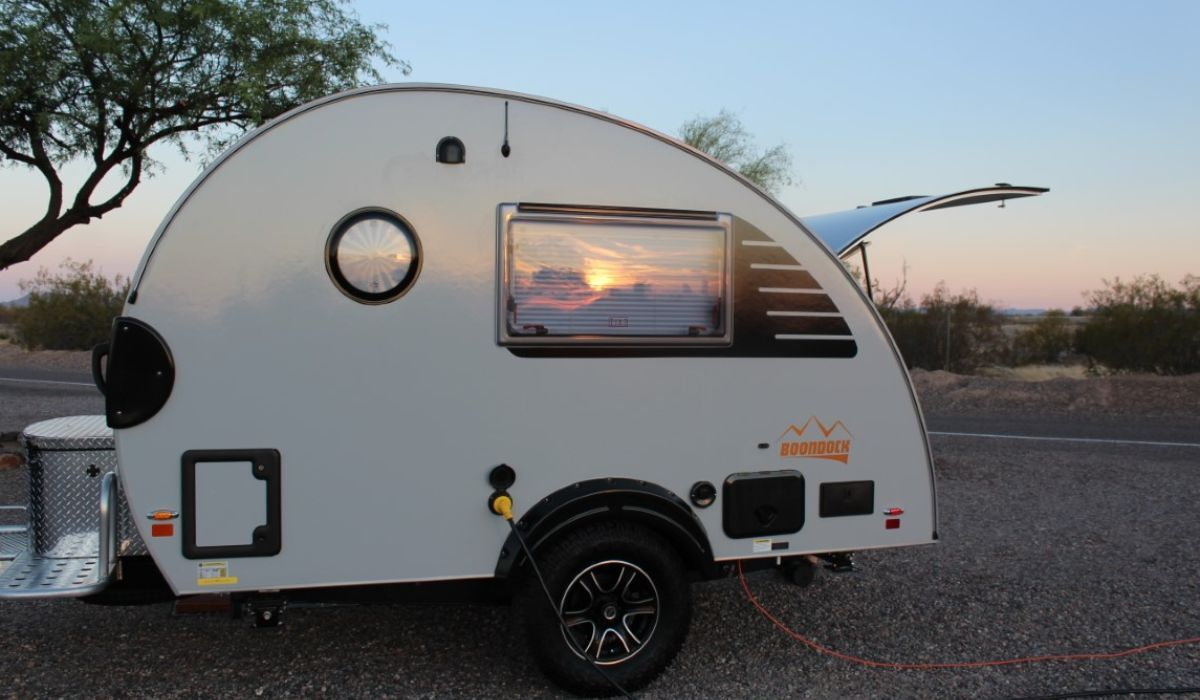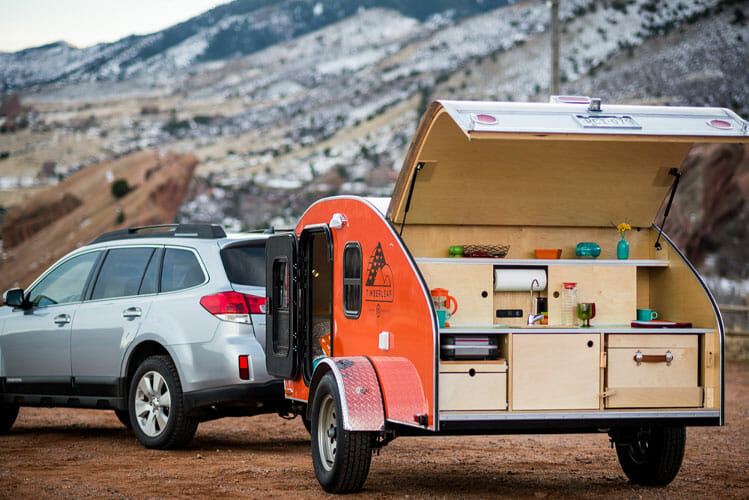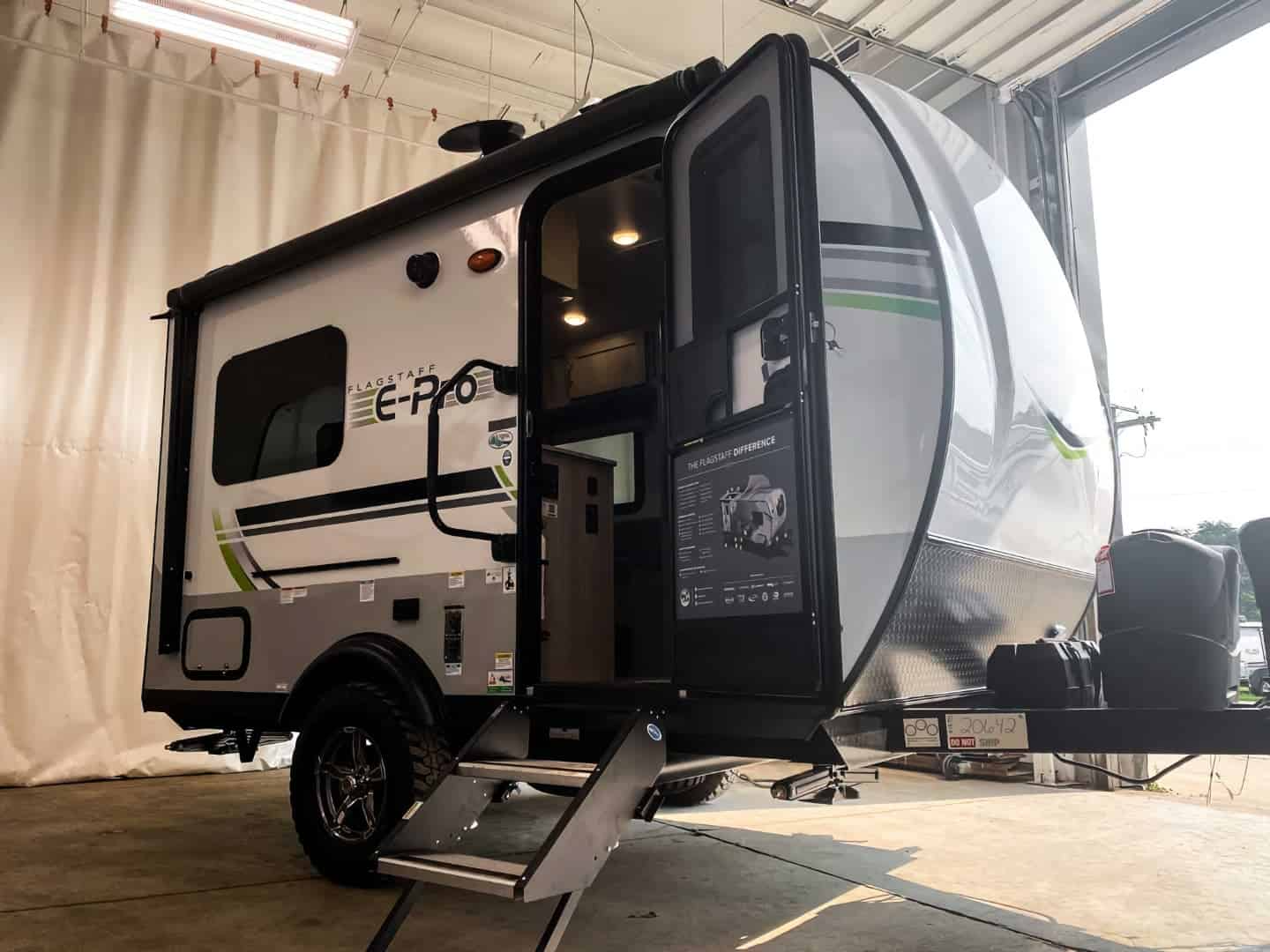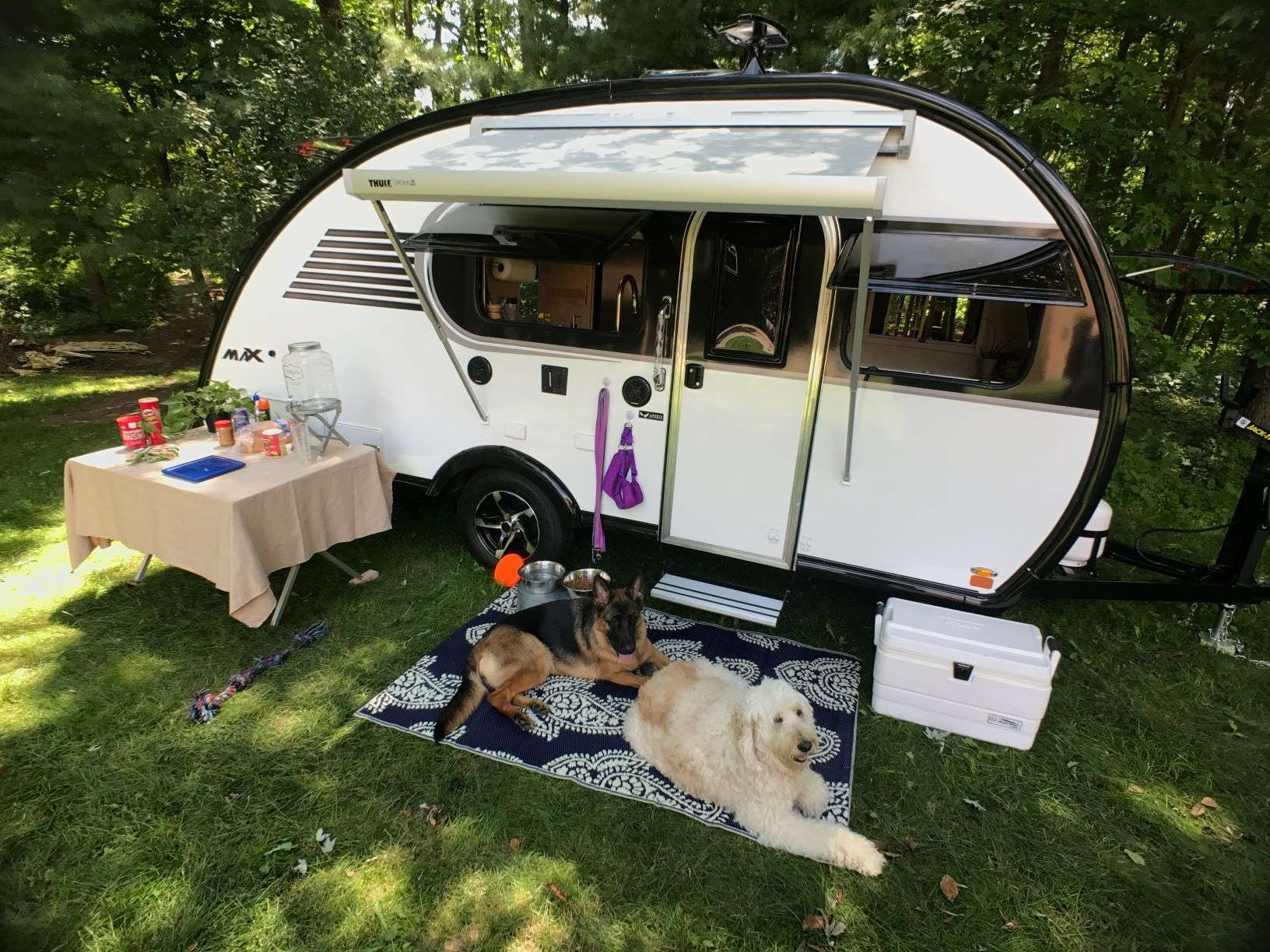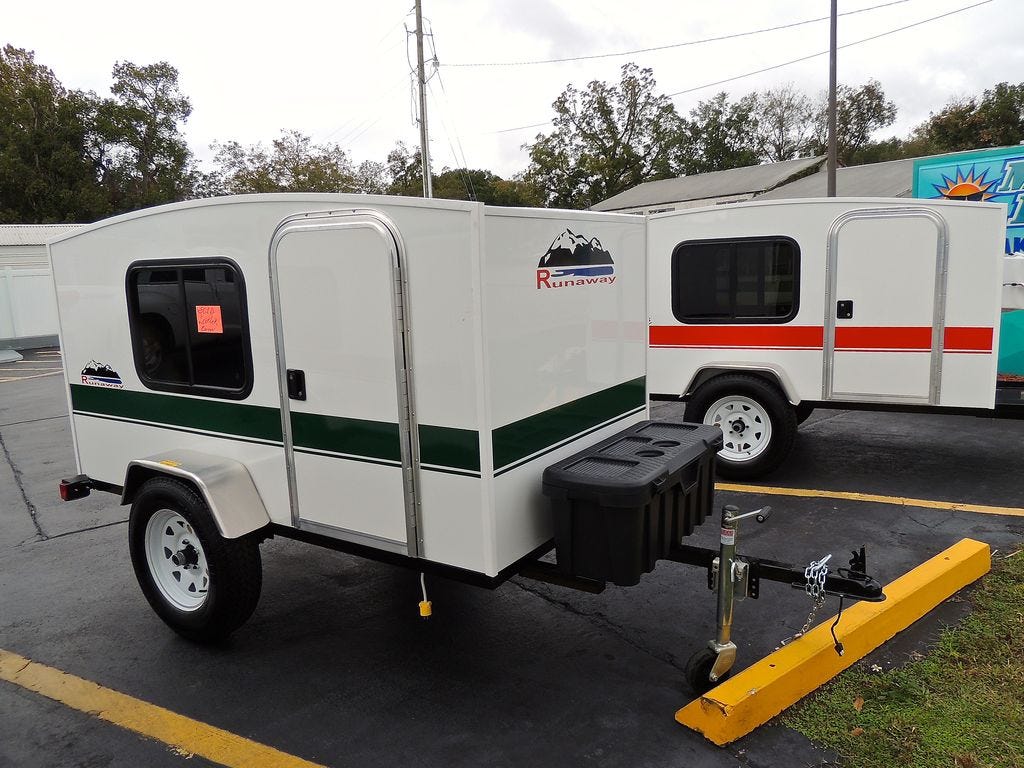In today’s fast-paced world, the allure of escaping into nature and embracing a simpler lifestyle is stronger than ever. For many outdoor enthusiasts, small campers offer the perfect blend of mobility, functionality, and affordability, enabling them to hit the open road while maintaining a connection with the natural world. These compact living spaces not only embody the spirit of minimalism but also provide the freedom to explore remote destinations and immerse oneself in the great outdoors without sacrificing comfort.
Compact Design
Maximizing Space and Efficiency
Small campers are ingeniously designed to make the most of every square inch, ensuring that even the tiniest of spaces can accommodate all the essentials for comfortable living on the go. Their compact dimensions—typically ranging from 10 to 20 feet in length—allow them to navigate narrow roads, tight campsites, and city streets with ease. Inside, convertible furniture, innovative storage solutions, and multi-functional appliances are thoughtfully integrated to maximize space and minimize clutter.
Beds fold up into sofas or dinettes during the day, while overhead cabinets, under-bed compartments, and strategically placed shelves provide ample storage for clothing, gear, and supplies. Moreover, efficient kitchenettes equipped with compact refrigerators, two-burner stoves, and fold-down sinks enable campers to prepare meals without compromising valuable floor space. This smart use of design and engineering turns these diminutive dwellings into cozy, self-contained sanctuaries, where every element serves a purpose and contributes to a streamlined, clutter-free environment.
Lightweight and Fuel-Efficient: Reducing Environmental Impact
One of the key advantages of small campers is their lightweight construction, which significantly reduces their overall mass compared to larger recreational vehicles (RVs). Constructed using materials such as aluminum, composite panels, and lightweight wood products, these diminutive dwellings place less strain on the towing vehicle, resulting in improved fuel efficiency and reduced emissions. This not only saves money on fuel costs over time but also minimizes the environmental footprint of each adventure. Additionally, many small campers can be towed by mid-size or even compact cars, further broadening the range of potential owners and reducing the need for dedicated tow vehicles that may consume more resources. By choosing a small camper, individuals demonstrate a commitment to responsible travel and sustainable tourism, allowing them to enjoy nature while minimizing their impact on the delicate ecosystems they visit.
Affordability and Accessibility
Making the Outdoors Accessible to All
Small campers offer an attractive entry point into the world of RVing for budget-conscious adventurers and those seeking a more financially manageable way to embrace the nomadic lifestyle. With lower purchase prices, reduced maintenance costs, and lower fuel expenses compared to their larger counterparts, these compact dwellings provide an accessible option for individuals and families who might otherwise be deterred by the financial demands of traditional RV ownership. Furthermore, their smaller size often translates to lower registration fees, insurance premiums, and campground fees, making it easier for a broader demographic to experience the joys of camping without breaking the bank.
For first-time campers or those with limited towing experience, small campers are also more approachable due to their ease of handling and maneuverability. Their compact dimensions and lighter weight make them less intimidating to tow, park, and set up, fostering confidence in novice RVers and facilitating a smoother transition into the world of outdoor adventuring. This accessibility encourages more people to disconnect from the daily grind, reconnect with nature, and cultivate a deeper appreciation for the great outdoors.
Versatility and Adaptability
Accommodating Diverse Travel Styles and Destinations
Small campers excel in their ability to adapt to various travel styles and accommodate diverse camping preferences. Whether one seeks rugged backcountry adventures, serene beachside retreats, or urban exploration, these versatile dwellings can be going to tailor to suit individual needs and preferences. Many models come equipped with features like four-wheel drive capabilities, off-road suspension systems, and high ground clearance, enabling intrepid travelers to venture off the beaten path and access remote wilderness areas that might be inaccessible to larger RVs. Conversely, their compact size allows for effortless navigation through busy cities, fitting into tight parking spots and blending seamlessly into urban landscapes.
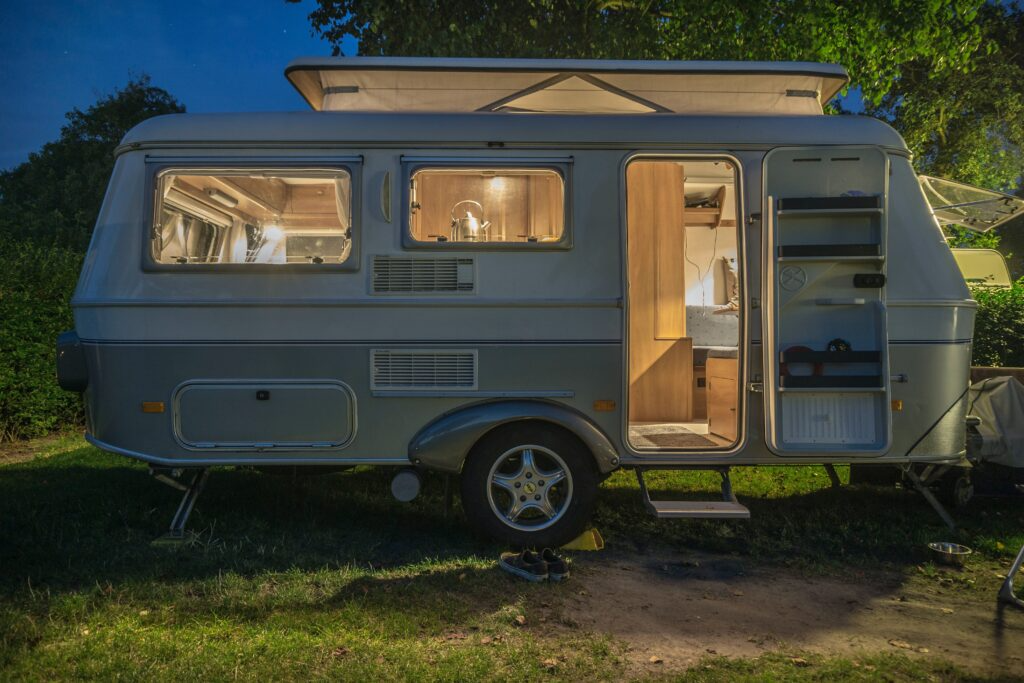
Moreover, small campers can be easily going to customize and upgraded to cater to specific interests or hobbies. From bike racks and kayak carriers for outdoor enthusiasts to solar panels and portable power stations for off-grid living, there is a wealth of aftermarket accessories available to enhance the functionality and personalization of these diminutive dwellings. This adaptability ensures that small campers can evolve alongside their owners, accommodating changing lifestyles and travel aspirations throughout the years.
Cultivating Community and Connection
Strengthening Bonds with Nature and Fellow Adventurers
Small campers foster a sense of community and camaraderie among fellow travelers, as their compact size often necessitates closer interactions with others at campgrounds, rest stops, and along the journey. Owners of small campers often find themselves engaging in impromptu conversations with curious passersby, swapping travel stories and tips around the campfire, or collaborating on DIY projects and upgrades. This shared passion for minimalist living and outdoor exploration creates a strong bond among like-minded individuals, nurturing lifelong friendships and a supportive network of fellow adventurers.
Furthermore, the intimate living quarters of small campers encourage occupants to spend more time outside, immersing themselves in nature and fostering a deeper connection with the environment. Whether it’s cooking meals al fresco, stargazing from a rooftop tent, or simply enjoying a morning coffee amidst the serenity of the woods, these tiny homes on wheels inspire a lifestyle that revolves around outdoor experiences. This heightened engagement with nature not only rejuvenates the soul but also instills a sense of stewardship, motivating owners to protect and preserve the beautiful landscapes they explore.
Conclusion
In conclusion, small campers embody the essence of minimalism, freedom, and adventure. Their compact designs, lightweight construction, affordability, versatility, and ability to foster community make them an appealing choice for a wide range of outdoor enthusiasts. By embracing the simplicity and efficiency of these diminutive dwellings, individuals can embark on unforgettable journeys, forge lasting connections, and cultivate a deep appreciation for the natural world, all while leaving a lighter footprint on the environments they cherish. For those yearning to break free from the constraints of modern life and reconnect with nature, small campers provide the perfect gateway to a world of endless possibilities and boundless exploration.
